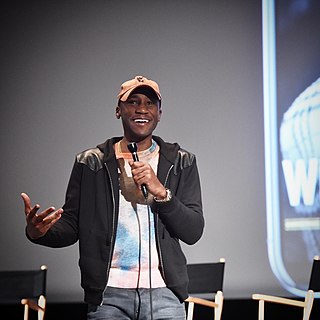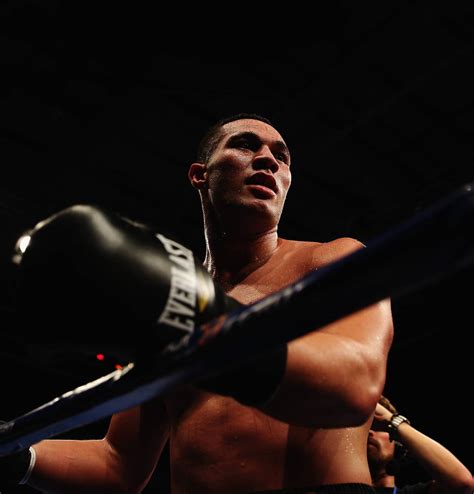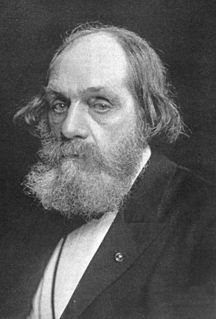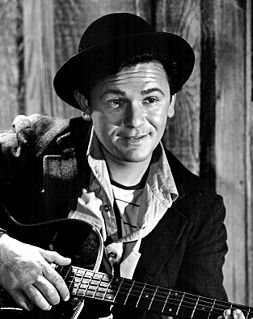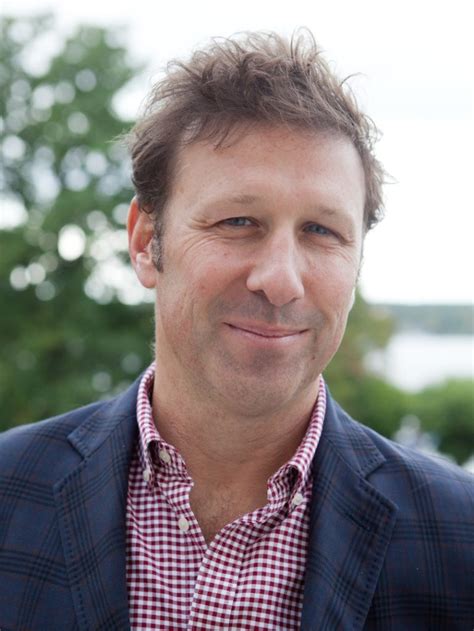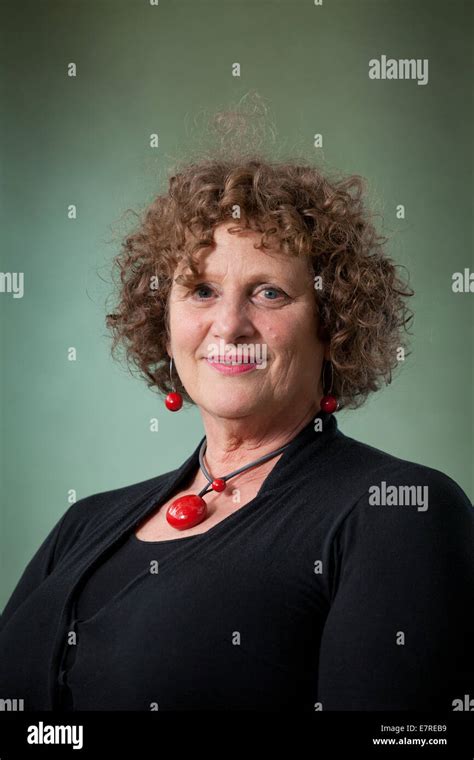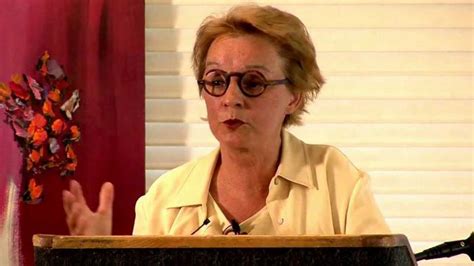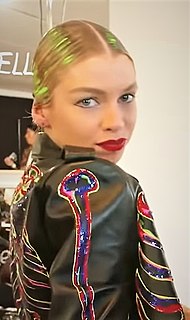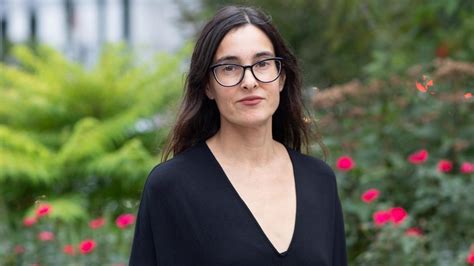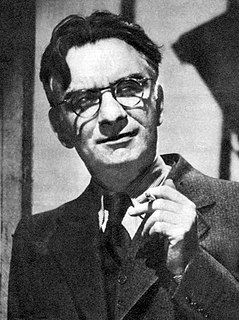Top 1200 Reading Inspirational Quotes & Sayings - Page 19
Explore popular Reading Inspirational quotes.
Last updated on November 23, 2024.
I'm very pessimistic about adaptations from one medium to another. I've got a very kind of primitive, Puritan view of it. I tend to think that if something was derived for one medium, then there's no real immediate reason to think that it's necessarily going to be as good or better if adapted into another one. There have been very good stage plays that have made some very good films. But there are not so many differences between the theater and the cinema as there are between the cinema and, say, reading a book or reading a comic.
Have you ever found your heart's desire and then lost it? I had seen myself, a portrait of myself as a reader. My childhood: days home sick from school reading Nancy Drew, forbidden books read secretively late at night. Teenage years reading -trying to read- books I'd heard were important, Naked Lunch, and The Fountainhead, Ulysses and Women in Love... It was as though I had dreamt the perfect lover, who vanished as I woke, leaving me pining and surly.
We like books that have a lot of dreck in them, matter which presents itself as not wholly relevant (or indeed, at all relevant) but which, carefully attended to, can supply a kind of "sense" of what is going on. This "sense" is not to be obtained by reading between the lines (for there is nothing there, in those white spaces) but by reading the lines themselves looking at them and so arriving at a feeling not of satisfaction exactly, that is too much to expect, but of having read them, of having "completed" them.
Still in my coat and hat, I sank onto the stair to read the letter. (I never read without making sure I am in a secure position. I have been like this ever since the age of seven when, sitting on a high wall and reading The Water Babies, I was so seduced by the descriptions of underwater life that I unconsciously relaxed my muscles. Instead of being held buoyant by the water that so vividly surrounded me in my mind, I plummeted to the ground and knocked myself out. I can still feel the scar under my fringe now. Reading can be dangerous.)
The Library didn't only contain magical books, the ones which are chained to their shelves and are very dangerous. It also contained perfectly ordinary books, printed on commonplace paper in mundane ink. It would be a mistake to think that they weren't also dangerous, just because reading them didn't make fireworks go off in the sky. Reading them sometimes did the more dangeous trick of making fireworks go off in the privacy of the reader's brain.
Now I see why reading was illegal for black people during slavery. I discover that I think in words. The more words I know, the more things I can think about. My vocab and thoughts grow together like the stem and petals of a flower. Reading was illegal because if you limit someone's vocab, you limit their thoughts. They can't even think of freedom because they don't have the language to.
The rules for reading yourself to sleep are easier to follow than are the rules for staying awake while reading. Get into bed in a comfortable position, make sure the light is inadequate enough to cause slight eyestrain, choose a book that is either terribly difficult or terribly boring-in any event, one that you do not really care whether you read or not-and you will be asleep in a few minutes. Those who are experts in relaxing with a book do not have to wait for nightfall. A comfortable chair in the library will do any time
To read as if your life depended on it would mean to let into your reading your beliefs, the swirl of your dreamlife, the physical sensations of your ordinary carnal life; and simultaneously, to allow what you're reading to pierce routines, safe and impermeable, in which ordinary carnal life is tracked, charted, channeled. Then, what of the right answers, the so-called multiple-choice examination sheet with the number 2 pencil to mark one choice and one choice only?
If you want to be a fiction writer, you need to start reading like a fiction writer. To do so, you need to learn about craft so that the next time you pick up a contemporary short story, you're reading it not as an abstraction floating in formaldehyde, existing simply for the theorist's dull scalpel to saw on, but as a concrete thing constructed out of words and shaped by syntax, brought to life by a writer who made several thousand choices, some large, some small, before letting that imperfect beauty, the story, walk on its own two feet.
I think I became a better writer after I started writing for the New Yorker. Well, I know I did. And part of it was having my New Yorker editor and part of it is that was when I started really going on tour and reading things in front of an audience 30 times and then going back in the room and rewriting it and reading it and rewriting it. So you really get the rhythm of the sentences down and you really get the flow down and you get rid of stuff that's not important.
I wish I had time to do more reading, but I just haven't had much time. But I still find time for writing. I've always preferred writing over reading, even though those things do go hand in hand. But when I do have time, even if it's not writing music, just writing in general - ideas and stories and things like that.
Everything about singing, I learned from busking. Everything I learned about songwriting, I learned from busking. Busking, you learn people, you learn about reading people. You learn about reading the atmosphere of the street. If you stand still in any city long enough, you see everyone pass you by. It's almost like you get to know personality types, just by watching people walk past. You get a sense for things.
The church itself has got to go outside of its own borders and carry the gospel to ev'ry creature, or it is no church of Christ; and any mutual improvement club which thinks that by reading its Shakspearo, or by acting its pretty tableaux, or by having. this or that little reading from Spenser and from Chaucer, it is going to lift itself up into any higher order of culture or life, is wholly mistaken, unless as an essential part of its duty, it goes out into the world, finds those that are falling down, and lifts them up to the majesty of freemen, who are sons of God.
I have made it a practice for several years to read the Bible through in the course of every year. I usually devote to this reading the first hour after I rise every morning. As, including the Apocrypha, it contains about fourteen hundred chapters, and as I meet with occasional interruptions, when this reading is for single days, and sometimes for weeks, or even months, suspended, my rule is to read five chapters every morning, which leaves an allowance of about one-forth of the time for such interruptions.
I hate being too serious about anything. If I'm with my friend, I want to be having fun with him or her. And if anybody is reading my story, I want them to be not only reading the story, but I want them to feel they're having fun; that they're enjoying it. So any way you can make it more informal, more fun-filled, more amusing - instead of just a dry story that goes on and on - if there's any way to do that, I like to try and do it.
If we are always reading aloud something that is more difficult than children can read themselves then when they come to that book later, or books like that, they will be able to read them - which is why even a fifth grade teacher, even a tenth grade teacher, should still be reading to children aloud. There is always something that is too intractable for kids to read on their own.
I was reading Raymond Chandler very much with the feminist eye. In six of his seven novels, it's the woman who presents herself in a sexual way, who is the main bad person. And then you start reading more fiction, whether crime fiction or straight fiction, it's just bad girls trying to make good boys do bad things, going all the way back to Adam and Eve. The woman that thou gavest me made me do it, Adam says to God.
I don't remember reading much at all during the writing of Eileen. I go through several years-long dry spells and I don't feel like reading at all. I was working part-time for a guy in Venice, California while I drafted Eileen. He wanted help in writing his memoir. The research had a lot to do with the 60s, so that must have informed my sense of the place and time in my novel, and perhaps even the memoir point-of-view. He was also from New England. It was a fun job. I learned a lot about motorcycle clubs, Charles Manson, hopping freight trains.
But in reading Shakespeare and in reading about Edward de Vere, it's quite apparent that when you read these works that whoever penned this body of work was firstly well-travelled, secondly a multi-linguist and thirdly someone who had an innate knowledge of the inner workings and the mechanisms of a very secret and paranoid Elizabethan court. Edward de Vere ticks those three boxes and many more. William of Stratford gave his wife a bed when he died [his second best bed].
For me as a kid, reading cyberpunk was like seeing the world for the first time. Gibson's Neuromancer wasn't just stylistically stunning; it felt like the template for a future that we were actively building. I remember reading Sterling's Islands in the Net and suddenly understanding the disruptive potential of technology once it got out into the street. Cyberpunk felt urgent. It wasn't the future 15 minutes out - it was the future sideswiping you and leaving you in a full-body cast as it passed by.
I started to concentrate more upon how the viewer looks at photographs... I would insert my own text or my own specific reading of the image to give the viewer something they might not interpret or surmise, due to their educated way of looking at images, and reading them for their emotional, psychological, and/or sociological values. So I would start to interject these things that the photograph would not speak of and that I felt needed to be revealed, but that couldn't be revealed from just looking at an image.
Turn off your radio. Put away your daily paper. Read one review of events a week and spend some time reading good books. They tell too of days of striving and of strife. They are of other centuries and also of our own. They make us realize that all times are perilous, that men live in a dangerous world, in peril constantly of losing or maiming soul and body. We get some sense of perspective reading such books. Renewed courage and faith and even joy to live.
Reading a novel after reading semiotic theory was like jogging empty-handed after jogging with hand weights. What exquisite guilt she felt, wickedly enjoying narrative! Madeleine felt safe with a nineteenth century novel. There were going to be people in it. Something was going to happen to them in a place resembling the world. Then too there were lots of weddings in Wharton and Austen. There were all kinds of irresistible gloomy men.
I'll never forget reading Chekhov's "A Doctor's Visit" on a train to Hawthorne, New York, and I got to the end - the scene where the patient says goodbye to the doctor and she puts a flower in her hair as a kind of thank you to him - and I felt like a cowboy shot from a canyon's top. This is a different experience from reading a novel, I think. The emotional effect is cumulative. Let's just hope market forces don't send short fiction the way of the dinosaur, because their sales are paltry compared to the novel and this is truly unfortunate.
Reading, therefore, is a co-production between writer and reader. The simplicity of this tool is astounding. So little, yet out of it whole worlds, eras, characters, continents, people never encountered before, people you wouldn’t care to sit next to in a train, people that don’t exist, places you’ve never visited, enigmatic fates, all come to life in the mind, painted into existence by the reader’s creative powers. In this way the creativity of the writer calls up the creativity of the reader. Reading is never passive.
I don't want to stand with somebody's praise. Whereas now when people come up to me, they say, "I love the bookstore" and "Kids! Come here, come here! This is the woman who owns the bookstore." That's incredible. I can say to that, "Thank you for shopping local. Thank you for coming in. What are you reading? Let's talk about books." It's about something I'm doing as opposed to somehow something I am. I feel comfortable and positive in that role. Because it's about reading. It's about books. It's about learning. It's about business and tax base.
But, in the end, the books that surround me are the books that made me, through my reading (and misreading) of them; they fall in piles on my desk, they stack behind me on my shelves, they surprise me every time I look for one and find ten more I had forgotten about. I love their covers, their weight and their substance. And like the child I was, with the key to the world that reading gave me, it is still exciting for me to find a new book, open it at the first page and plunge in, head first, heart deep.
A myth is a fantasy, a preferred lie, a foundational story, a hypnotic trance, an identity game, a virtual reality, one that can be either inspirational or despairing. It is a story in which I cast myself; it is my inner cinema, the motion picture of my inner reality - one that moves all the time. No diagnosis can fix the myth, no cure can settle it, because our inner life is precisely what, in us, will not lie still.
I began reading Harper Lee's novel in the skimpy shade of a pine outside my grandmother's house, fat beagles pressing against me, begging for attention, ignored. At dark, I kept reading, first on the couch, a bologna sandwich in one hand, then in my bed, by the light of a 60-watt bulb hanging from the ceiling on an orange drop cord. When my mother came in from her job as a maid and unplugged my chandelier, I replayed the story in my head until it was crowded out by dreams. I woke the next morning, smelling biscuits, and reached for the book again.
With so much reading ahead of you, the temptation might be to speed up. But in fact it’s essential to slow down and read every word. Because one important thing that can be learned by reading slowly is the seemingly obvious but oddly underappreciated fact that language is the medium we use in much the same way a composer uses notes, the way a painter uses paint. I realize it may seem obvious, but it’s surprising how easily we lose sight of the fact that words are the raw material out of which literature is crafted.
The second suggestion is to think as well as to read. I know people who read and read, and for all the good it does them they might just as well cut bread-and-butter. They take to reading as better men take to drink. They fly through the shires of literature on a motor-car, their sole object being motion. They will tell you how many books they have read in a year. Unless you give at least 45 minutes to careful, fatiguing reflection (it is an awful bore at first) upon what you are reading, your 90 minutes of a night are chiefly wasted.
I don't believe we need a good conservative judge, and I don't believe we need a good liberal judge. I subscribe to the Justice Potter Stewart standard. He was a justice on the Supreme Court of the United States. And he said the mark of a good judge, good justice, is that when you're reading their decision, their opinion, you can't tell if it's written by a man or woman, a liberal or a conservative, a Muslim, a Jew or a Christian. You just know you're reading a good judicial decision.
I actually dislike, more than many people, working through literary allusion. I just feel that there's something a bit snobbish or elitist about that. I don't like it as a reader, when I'm reading something. It's not just the elitism of it; it jolts me out of the mode in which I'm reading. I've immersed myself in the world and then when the light goes on I'm supposed to be making some kind of literary comparison to another text. I find I'm pulled out of my kind of fictional world, I'm asked to use my brain in a different kind of way. I don't like that.
Jeff Chu's pilgrimage across America to discover his own place as a gay man in the Christian church as well as attitudes about being gay and Christian across denominations is at once timely, smart, poignant, disturbing, inspiring, and maddening. It's essential reading for anyone who cares about the rights of the LGBTQ community to be treated as equal citizens at every level, including the religious-which means it should be essential reading for everybody.
A good book deserves an active reading. The activity of reading does not stop with the work of understanding what a book says. It must be completed by the work of criticism, the work of judging. The undemanding reader fails to satisfy this requirement, probably even more than he fails to analyze and interpret. He not only makes no effort to understand; he also dismisses a book simply by putting it aside and forgetting it. Worse than faintly praising it, he damns it by giving it no critical consideration whatever.
By the time I got to college I had stopped reading books because I wanted to "be cool" and started reading books simply because I wanted to read them. I discovered heroes like Roth, King, Dahl, Shirley Jackson, Patricia Highsmith, TC Boyle, Douglas Adams, Neil Gaiman, David Sedaris. These people weren't trying to "rebel against the literary establishment." They were trying to write great, high-quality books that were as entertaining and moving as possible.
There is no shortage of good days. It is good lives that are hard to come by. A life of good days lived in the senses is not enough. The life of sensation is the life of greed; it requires more and more. The life of the spirit requires less and less; time is ample and its passage sweet. Who would call a day spent reading a good day? But a life spent reading -- that is a good life.
It is usual to speak in a playfully apologetic tone about one's adult enjoyment of what are called 'children's books.' I think the convention a silly one. No book is really worth reading at the age of ten which is not equally (and often far more) worth reading at the age of fifty-except, of course, books of information. The only imaginative works we ought to grow out of are those which it would have been better not to have read at all. A mature palate will probably not much care for crème de menthe: but it ought still to enjoy bread and butter and honey.
There is only one way to read, which is to browse in libraries and bookshops, picking up books that attract you, reading only those, dropping them when they bore you, skipping the parts that drag-and never, never reading anything because you feel you ought, or because it is part of a trend or a movement. Remember that the book which bores you when you are twenty or thirty will open doors for you when you are forty or fifty-and vise versa. Don’t read a book out of its right time for you.
The Bible is forbidding when you start to read it. The language is odd. The stories start and stop herkily-jerkily. The characters behave in inexplicable ways. It takes a little bit of time to get into the rhythm of the book. I found reading the first 15 chapters of Genesis very very difficult. Once I got past there, I loved reading, and found it very easy. When you get used to the Bible, it becomes thrilling to read (like any great book - I just had exactly the same experience with the Odyssey).
When it’s too good, you do it over again. Too good is too easy. If it’s too easy you have to worry. If you’re not lying awake at night worrying about it, the reader isn’t going to, either. I always know that when I get a good night’s sleep, the next day I’m not going to get any work done. Writing a novel is like working on foreign policy. There are problems to be solved. It’s not all inspirational.
To travel only a few blocks in his own homeland, an elderly grandfather waits to beg for the whim of a teenage soldier. More than an emergency is required to get to a hospital; less than a crime earns a trip to jail.
Continue reading the main story
Advertisement
Continue reading the main story
The lucky ones have a permit to leave their squalor to work in the cities, but luck runs out when security closes all checkpoints, paralyzing an entire people. The indignities, dependence and anger are all too familiar.
From the perspective of someone with two grown and wonderful kids, that your instincts as parents are correct: a minute spent reading to your kids now will repay itself a million-fold later, not only because they love you for reading to them, but also because, years later, when they’re gone and miles away, those quiet evenings, when you were tucked in with them, everything quiet but the sound of the page-turns, will, seem to you, I promise...... sacred.
The main reason I decided to study Latin American literature was because I'd gotten somewhat bored by the American fiction I was reading. I am not drawn to a specific style or aesthetic. When I think about literature, I think about it in the three languages I read easily - English, Spanish, and Portuguese. The authors I prefer are all very different and are not limited to certain genres or even certain time periods. Reading across three languages is a way for me to diversify my intake as a reader, not to tunnel into certain categories or demographics.
If it was a biopic about Glenn Greenwald, I would have immersed myself more fully in his personal life and gotten to know him as much as I could, but because it was much more about his relationship to this particular situation, to The Guardian, to Laura Poitras, and to Ewen MacAskill, and Edward Snowden, I was able to really learn a lot about him from reading his book and reading his many articles and accounts of that time.
If you spend enough time reading or writing, you find a voice, but you also find certain tastes. You find certain writers who when they write, it makes your own brain voice like a tuning fork, and you just resonate with them. And when that happens, reading those writers ... becomes a source of unbelievable joy. It’s like eating candy for the soul. And I sometimes have a hard time understanding how people who don’t have that in their lives make it through the day.
My daughter is seven, and some of the other second-grade parents complain that their children don't read for pleasure. When I visit their homes, the children's rooms are crammed with expensive books, but the parent's rooms are empty. Those children do not see their parents reading, as I did every day of my childhood. By contrast, when I walk into an apartment with books on the shelves, books on the bedside tables, books on the floor, and books on the toilet tank, then I know what I would see if I opened the door that says 'PRIVATE--GROWNUPS KEEP OUT': a child sprawled on the bed, reading.
A writer writes a book. People read it. You don't know what they're reading, really. You read a review and think, "That is so inaccurate. You can't have been reading my book with any kind of attention, because that is all wrong, that's even the wrong name you're including there." But these reviewers have been diminished in importance, the work is so little respected. If you're reviewed by a real critic, by James Wood or Louis Menand, then you get something that is informed, interesting, and highly articulate. But the average review doesn't have that kind of depth anymore.
Despite wanting to work in publishing, I was a publisher's worst nightmare: I rarely bought new books. So my goal was to publish the kind of books I would buy, and read. My reading habits have changed since starting the press. The only other "goal", per say, is to continue to experiment. I don't want the press to ever fall into a formula, or to be pigeonholed - "They do great reissues of modernist poets!" - I want to keep pushing, exploring the kind of title we can get away with. And working with authors who challenge the way I think about writing, editing and reading.





